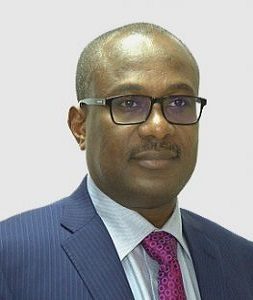The Nigerian Content Development Management Board, Monday, said despite the many antics of oil and gas companies, it would ensure the protection of Nigerian Content by law at all cost.
Speaking at the ongoing Nigerian Oil and Gas Conference and Exhibition in Abuja, Mr. Simbi Wabote, Executive Secretary of the NCDMB, stated that it would not be deterred by the antics of the companies trying to sabotage the local content initiative of the Federal Government.
Wabote said, “The journey is not easy. When you push a positive agenda, there are so many forces you have to contend with. The same International Oil Companies, IOC, and same companies would use all manner of antics and tell you why it is not possible to do things in Nigeria.
“But we believe in our capacity, and we believe in our future strategy, and luckily for us, most of us are also industry players. We understand the terrain and we stand our ground.
“I must tell you, all forms of sabotage are brought against the Board on reasons why we cannot go beyond certain percentages, but trust us, we are standing our ground and we would ensure that Nigerian content is protected by the law at all cost.”
He stated that a benchmark had been set by the Egina project, noting that all other projects coming would surpass what Egina achieved, since that is the baseline in terms of local content development.
Wabote noted that the NCDMB was working on the promotion of domestic utilization of Liquefied Petroleum Gas, LPG, and the establishment of modular refineries.
According to him, the NCDMB recently signed shareholders agreement for 30 percent equity participation in 5,000 barrels per day modular refinery, noting that more of such interventions are in the pipeline.
Also speaking, Mrs. Ola Sorunke-Williams, Head of Energy, West Africa for United Kingdom Department for International Trade, stated that the UK would encourage more Nigerian firms to invest and venture into deepwater petroleum production.
She said: “Moving forward, Nigeria is going into deep water and that is where we are in the North Sea. That is what we are doing in Aberdeen which is the North Sea.
”We are trying to see how we can take that knowledge and technical capacity and create that or better still metamorphose it in Nigeria. Deep water is new in Nigeria and there would be challenges, which we have faced in Aberdeen.”
She added that the UK agency was working to mobilize major Original Equipment Manufacturers, OEM, to partner with Nigerian companies, especially in the area of capacity development and in bringing investments into the petroleum industry.
She said, “What we have done is to bring together all the companies that are willing to come into Nigeria to invest, not alone in partnership but also looking for collaboration with the Nigerian companies.
“What are we doing when it comes to Research and Development, R&D, is to work with the universities. When it comes to vocational theory is for them to work with OEMs in their facilities and understand exactly how to work with those machines.
Also speaking, Mr. Ahmadu-Kida Musa, Deputy Managing Director, Deepwater, Total Upstream Companies in Nigeria, stated that if the pace of project implementation in Nigeria was sustained over the next eight years, Nigeria would be begin the full integration of Floating, Production, Storage and Offloading vessels with the next seven to eight years.
According to him, this feat would be achieved if the right policies and investor-friendly legislations are put in place by government at all levels.
He said, “With several large deep-water discoveries still to be developed, such as Bonga South West or Owowo, we know that the resources are there. All the yards that have been involved in the development of the Egina project need activity to maintain their infrastructure and the improved competency levels of their human capital.”
Musa noted that for Nigeria to continue to enjoy investments from oil and gas companies, sustainable production sharing contracts and gas terms must be put in place.
He said, “With several large deep-water discoveries still to be developed, such as Bonga South West or Owowo, we know that the resources are there. All the yards that have been involved in the development of the Egina project need activity to maintain their infrastructure and the improved competency levels of their human capital.
“Both government and the Industry have a critical role to play here. In the past three years, to keep the industry alive, all the operators have been focusing on reducing the cost of new deep-water projects in order to make sure that they can sanction projects and bring value at $50 per barrel.
“While the operators are all trying to tighten their belt in line with the realities of the times, it is important that we put in place sustainable PSC and Gas terms as this is a fundamental requirement for continued investment in Nigeria’s deep offshore.”
He argued that the development of new projects is critical to maintaining industry capacities, stating that as the industry moves even further offshore, the need for this know-how cannot be over-emphasised.
“Nigeria must move up to a level where it is able to meet the competency needs of other new entrants within the Africa sub-region and be considered as a technological hub for the region,” he noted.
Musa further stated that through careful legislation and government policies, the Nigerian Content in the Nigerian oil and gas industry could also have great impact in other sectors of the economy, such as the information & communication technology/telecommunication sector, agriculture, engineering and construction, manufacturing, transport and storage, power and finance among others.
“The next frontier is very broad and filled with opportunities. But it is also lined with a lot of challenges that I believe are surmountable. Let us take the bold steps and decisions that we all require to move into the next phase,” he noted. яндекс

